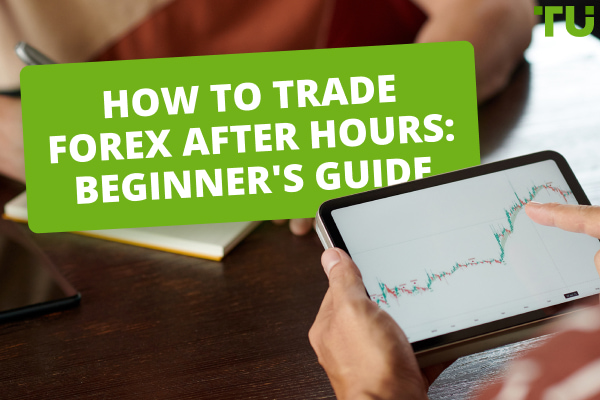Raw Spread Vs Standard Account
Raw spread accounts are preferred by experienced scalpers and day traders who understand the market dynamics, order type, and the impact of high market volatility. Standard accounts are more suitable for beginners because they are less affected by volatility and have relatively fixed spreads.
According to Traders Union:
-
OANDA – Best Broker With Standard Account;
-
Interactive Brokers – Best Broker With RAW Spread Account.
One of the many challenges Forex traders face, especially beginners, in the financial markets is choosing between a raw spread and a standard account. Understanding the differences and choosing the account type that suits your trading style can significantly shape your trading journey. So, in this article, we will unveil the details between raw spread vs. standard accounts, the distinct pros and cons of each account type, and the best account type for a beginner.
What is a standard account?
A standard account is a flexible trading account that typically offers traders standard trading conditions. It offers traders access to various markets like stocks, Forex, indices, and commodities. Besides, it also offers higher leverage, which enables traders to open larger trade positions with smaller capital. Finally, spreads and commissions in standard accounts vary for different brokers. Generally, spreads are higher albeit with lower or no commissions.
👍 Pros
• Higher Leverage: Higher leverage allows traders to open larger positions with little capital. This offers traders the opportunity to make significant profits from the market, regardless of their account size.
• Less Market Volatility: Standard accounts are less affected by market volatility because the broker acts as a market maker.
• Commission-free: Trades open on standard accounts are typically free from commissions charged by brokers.
👎 Cons
• Wider Spread: Standard accounts have a wider spread, which could impact profitability.
• Increased Risks: While high leverages offer traders the opportunity to make significant profits with limited capital, it also increases the chance of losing capital with few bad trades.
What is raw spread in Forex?
Raw spread in Forex represents a type of trading account that offers traders the real cost of executing a trade, which reflects the interbank rates in the financial markets. Essentially, brokers that offer raw spread accounts do not add markups to the spreads, thereby allowing traders to trade with tight market spreads.
👍 Pros
• Transparency: Traders get the actual cost of trading without hidden charges or markups on spreads.
• Lower Trading Costs: Brokers with raw spreads offer traders the opportunity to trade at lower costs.
• Fast Market Execution: Raw spread account also offers faster market execution, which makes it suitable for high-frequency trading.
👎 Cons
• Hidden Charges: Some brokers may charge higher commissions and swap fees to make up for the zero-cost spread.
• Market Volatility: Traders may incur severe losses from a sudden increase in market volatility.
Comparison between raw spread vs standard account
| Feature | Raw Spread Account | Standard Account |
|---|---|---|
|
Spreads |
Variable, very tight |
Fixed, typically wider |
|
Commissions |
Charged per trade size |
Usually commission-free |
|
Pricing |
Direct market access |
Broker acts as a market maker |
|
Market Conditions |
Best for high volatility |
Less affected by volatility |
|
Suitable for |
Scalpers and day traders |
Swing traders and beginners |
|
Transparency |
High transparency |
May lack transparency |
|
Predictability |
Spreads may vary widely |
Fixed spreads for easy planning |
|
Costs |
Lower spreads, commissions |
Spreads make up the cost |
Which one is the better choice for beginners?
Forex traders approach the financial market differently. So, choosing between standard and raw spreads is dependent on a trader’s preference and style of trading. However, here’s a breakdown of standard account vs. raw spread to help beginner traders make better choices:
Raw Spread Accounts are widely preferred by experienced scalpers and day traders who understand the market dynamics, order type, and the impact of high market volatility. So, raw spread accounts generally suit experienced traders with high trading frequency like scalpers and day traders because of the tighter spreads
On the other hand, standard accounts are more suitable for beginners because they are less affected by volatility and have relatively fixed spreads. The fixed spread offered by standard accounts is crucial for beginner traders to calculate how much they are willing to lose should a trade position go contrary to the direction of the projected analysis.
Furthermore, unlike a raw spread account that requires bigger trading capital; a standard account requires small capital, which makes it affordable and more suitable for beginners.
Best brokers with a standard account


Main Features of Top 3 Standard Account Brokers
| OANDA | Trading.com | FOREX.com | |
|---|---|---|---|
| Trading platform |
WebTrader, MetaTrader4, Mobile platforms, MetaTrader5 | MT5 | FOREX.com, MT4, MT5 |
| Min deposit | No | $5 | $1000 |
| Leverage |
From 1:1 to 1:200 |
From 1:1 to 1:30 |
From 1:1 to 1:400 |
| Trust management | No | No | No |
| Accrual of % on the balance |
No |
No |
No |
| Spread | From 0 points | From 0.6 points | From 0.2 points |
| Level of margin call / stop out |
No | 100% / 50% | No |
| Execution of orders | Market Execution | Market Execution | Market Execution, Instant Execution |
| No deposit bonus | No | No | No |
Best brokers with raw spread account

Main Features of Top 3 Raw Spread Brokers
| Interactive Brokers | RoboForex | Pocket Option | |
|---|---|---|---|
| Trading platform |
Trader Workstation, IBKR Mobile, APIs | MT4, MT5, R MobileTrader, R StocksTrader, R WebTrader | Pocket Option, MT5, MT4 |
| Min deposit | No | $10 | $5 |
| Leverage |
From 1:1 to 1:50 |
From 1:1 to 1:2000 |
From 1:1 to 1:1000 |
| Trust management | No | No | No |
| Accrual of % on the balance |
No |
No |
No |
| Spread | From 0 points | From 0 points | From 1.2 point |
| Level of margin call / stop out |
No | 60% / 40% | 30% / 50% |
| Execution of orders | Market Execution | Market Execution, Instant Execution | Market Execution |
| No deposit bonus | No | No | No |
Expert Opinion
Novice traders should prioritize simplicity and cost predictability above all else when choosing an account. This should steer them towards standard accounts. Here's why:
Standard accounts have a built-in spread, which acts like a single transaction cost. This simplifies expense calculation and avoids surprises.
Raw spread accounts, while offering tighter spreads (potentially lower costs per trade), charge commissions on top. This adds complexity and makes cost prediction trickier, especially for beginners.
Raw spreads are ideal for frequent, short-term trades (scalping, day trading) where tight spreads matter most. Beginners typically focus on longer-term strategies where raw spreads have less impact.
Standard accounts often come with lower minimum deposits, making them more accessible for starting with a smaller investment.
Novice traders should focus on learning the fundamentals of trading before diving into complex cost structures. Standard accounts provide more straightforward conditions for beginners to develop their skills.
FAQs
What are the advantages of a raw spread account?
The advantages of raw spread accounts include tighter spreads, fast market execution, lower trading costs, suitability for scalping, and transparency in pricing.
What is the difference between a raw spread and a zero spread account?
The difference between raw and zero spread accounts lies in the trading commission a broker charges for opening an order. Commission for zero spread accounts is typically higher than that of raw spread accounts, which is calculated based on the lot size.
Which account type is best for trading?
Account type for trading depends on the trading style and goals of a trader. For instance, a zero spread account tends to appeal to high-frequency traders and scalpers, while the standard account is more suitable for beginners due to fixed spread and low market volatility.
Which trading account type is best for beginners?
A standard account is the most suitable account type for beginners.
Team that worked on the article
Andrey Mastykin is an experienced author, editor, and content strategist who has been with Traders Union since 2020. As an editor, he is meticulous about fact-checking and ensuring the accuracy of all information published on the Traders Union platform. Andrey focuses on educating readers about the potential rewards and risks involved in trading financial markets.
He firmly believes that passive investing is a more suitable strategy for most individuals. Andrey's conservative approach and focus on risk management resonate with many readers, making him a trusted source of financial information.
Dr. BJ Johnson is a PhD in English Language and an editor with over 15 years of experience. He earned his degree in English Language in the U.S and the UK. In 2020, Dr. Johnson joined the Traders Union team. Since then, he has created over 100 exclusive articles and edited over 300 articles of other authors.
The topics he covers include trading signals, cryptocurrencies, Forex brokers, stock brokers, expert advisors, binary options. He has also worked on the ratings of brokers and many other materials.
Dr. BJ Johnson’s motto: It always seems impossible until it’s done. You can do it.
Mirjan Hipolito is a journalist and news editor at Traders Union. She is an expert crypto writer with five years of experience in the financial markets. Her specialties are daily market news, price predictions, and Initial Coin Offerings (ICO). Mirjan is a cryptocurrency and stock trader. This deep understanding of the finance sector allows her to create informative and engaging content that helps readers easily navigate the complexities of the crypto world.













